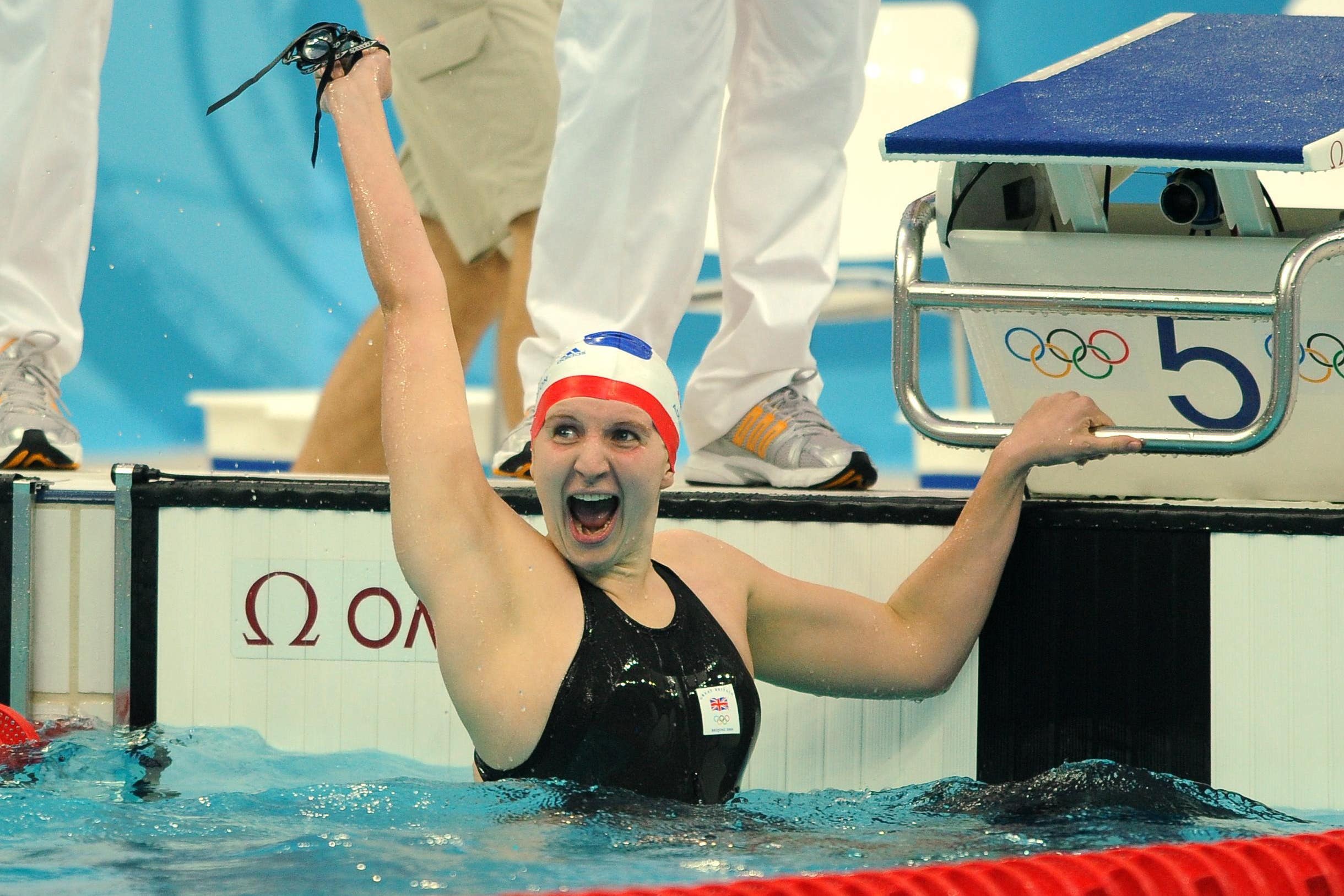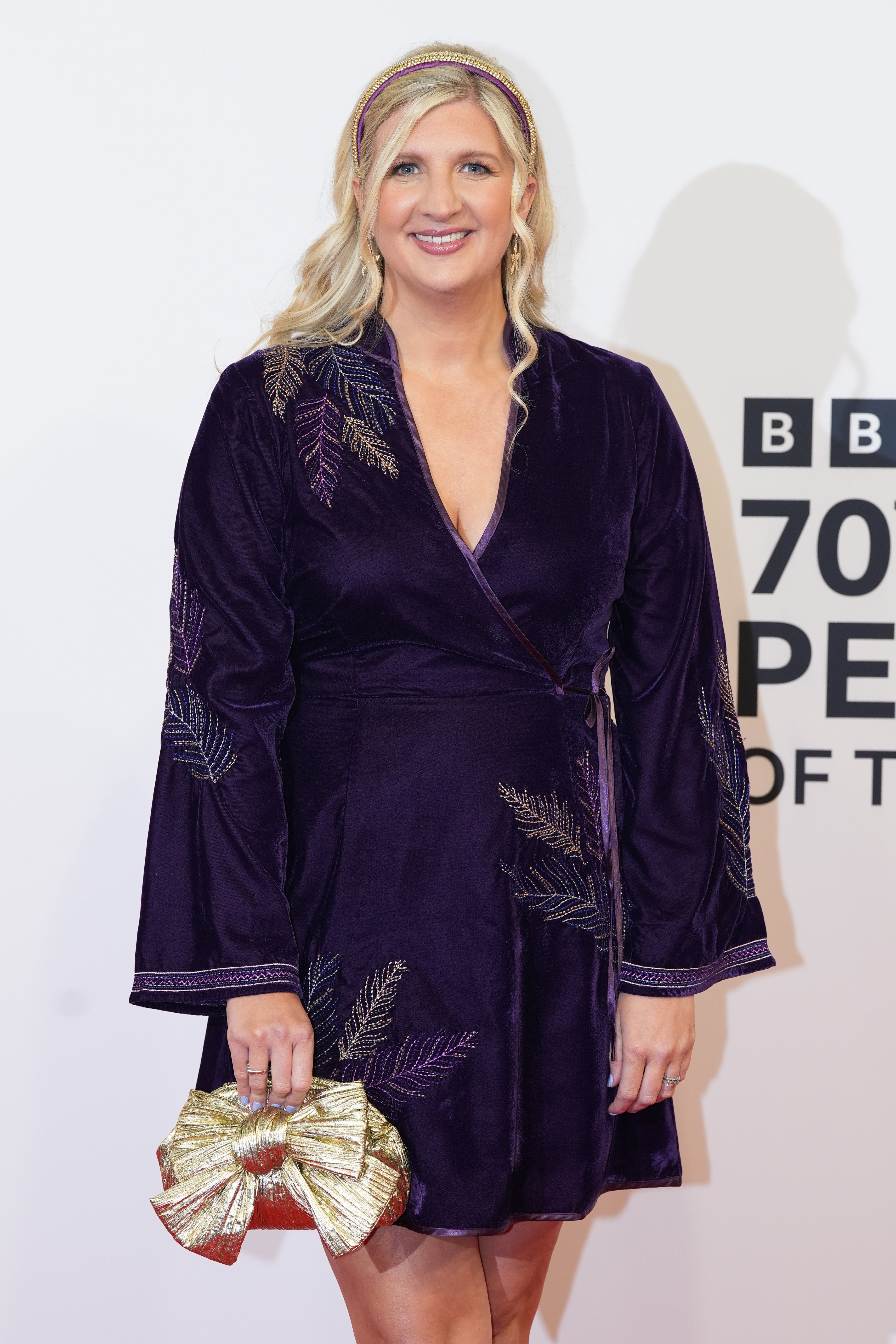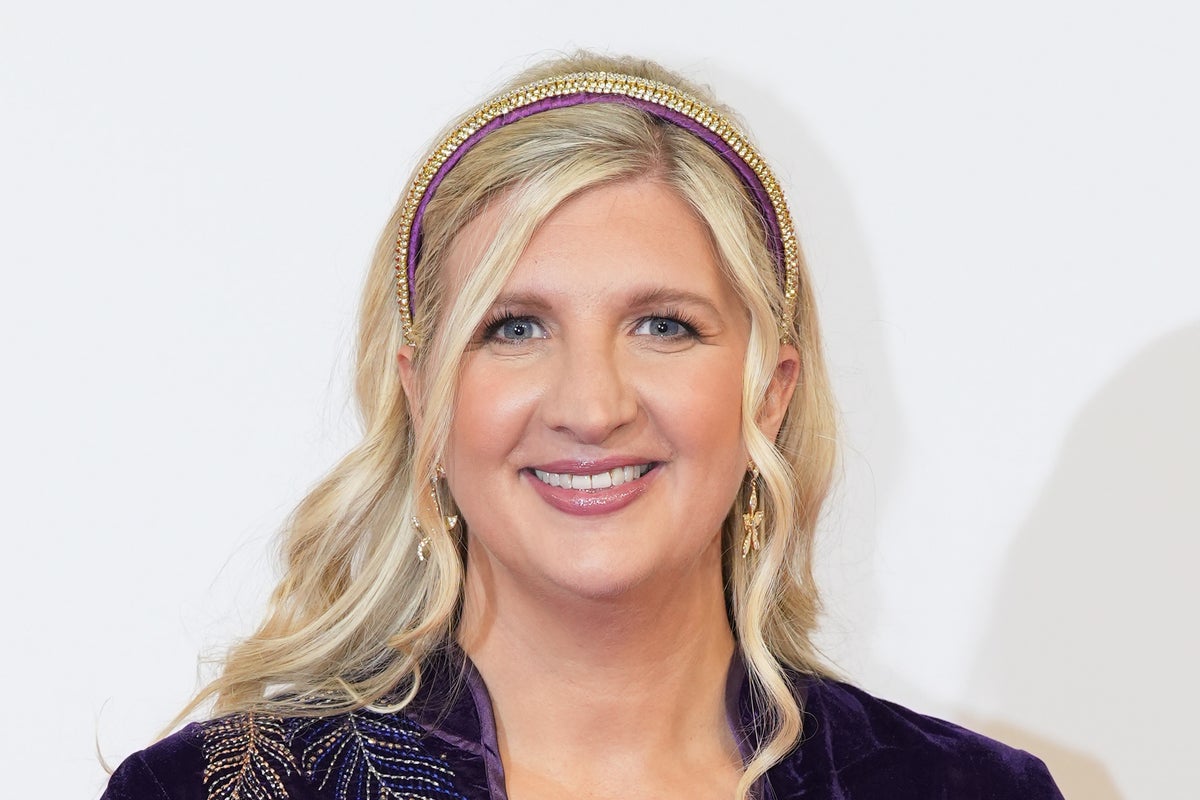Former Olympic swimmer Rebecca Adlington has opened up about dealing with hurtful comments about her weight and appearance while competing for Team GB, aged 19.
The four-time Olympic gold medalist and BBC pundit, who made her debut at the 2008 Beijing Games and won the 400 and 800 metres freestyle, has said in a new interview that she “blocked everyone out” while dealing with public criticism of her body.
“I had won an Olympic medal – but the media was saying I was too fat. That I wasn’t in shape. I kept thinking: What am I too fat for? Yes, I’ve got big shoulders, but they’re my power,” she told the i.
She added: “I was 19 and people were openly saying how ugly I was. I was still a baby. It was incredibly difficult to navigate because I knew I wasn’t attractive. I’ve never considered myself one of the pretty girls. But I didn’t realise you had to be stunning to be an Olympic athlete.
“For me, it was very normal to have a tall body frame and big shoulders. Swimming is a very exposing sport; you are in a swimsuit. But people in swimming clubs do not look at one another as fat or thin. I look at people and think they’re in shape.”
Adlington said that she felt the “most sorry” for her parents, because they would see the hateful messages “about their little girl”.
To cope, the athlete kept a tight-knit circle around her and “blocked everyone else out”.

“I don’t know how I got through it. I don’t think I handled it the best way,” she said.
Adlington, from Mansfield in Nottinghamshire, retired from competitive swimming aged 23, and now works as a well-known face in BBC Olympic commentary and runs Swim!, a school that teaches children to swim.
She shares a son, Albie, with her husband Andy Parsons. She also has a daughter, Summer, from her first marriage to swimmer and personal trainer Harry Needs.
Adlington has recently been using her platform to raise awareness of coeliac disease, which she was diagnosed with after experiencing recurring miscarriages.
Coeliac disease is a condition where the immune system attacks a person’s tissues when they consume gluten, a protein naturally found in grains such as wheat, barley and rye, which can damage the small intestine.

“Looking back, I’ve had symptoms for a couple of years, but I was not aware that the disease was linked to fertility and miscarriage,” Adlington said in the same interview.
She said that doctors initially thought she had gastroenteritis – an inflammation of the stomach and intestines – but doctors tested her for coeliac disease after he recurring miscarriages.
“I think my symptoms worsened with my second pregnancy with my son Albie,” she said, adding: “I put the fatigue down to my hormones changing so much with getting pregnant. I would have a painful stomach and bloating.”
In March, Adlington partnered with the charity Coeliac UK and handed a petition to the UK government to highlight the importance of protecting access to gluten-free prescriptions for people with the disease.


